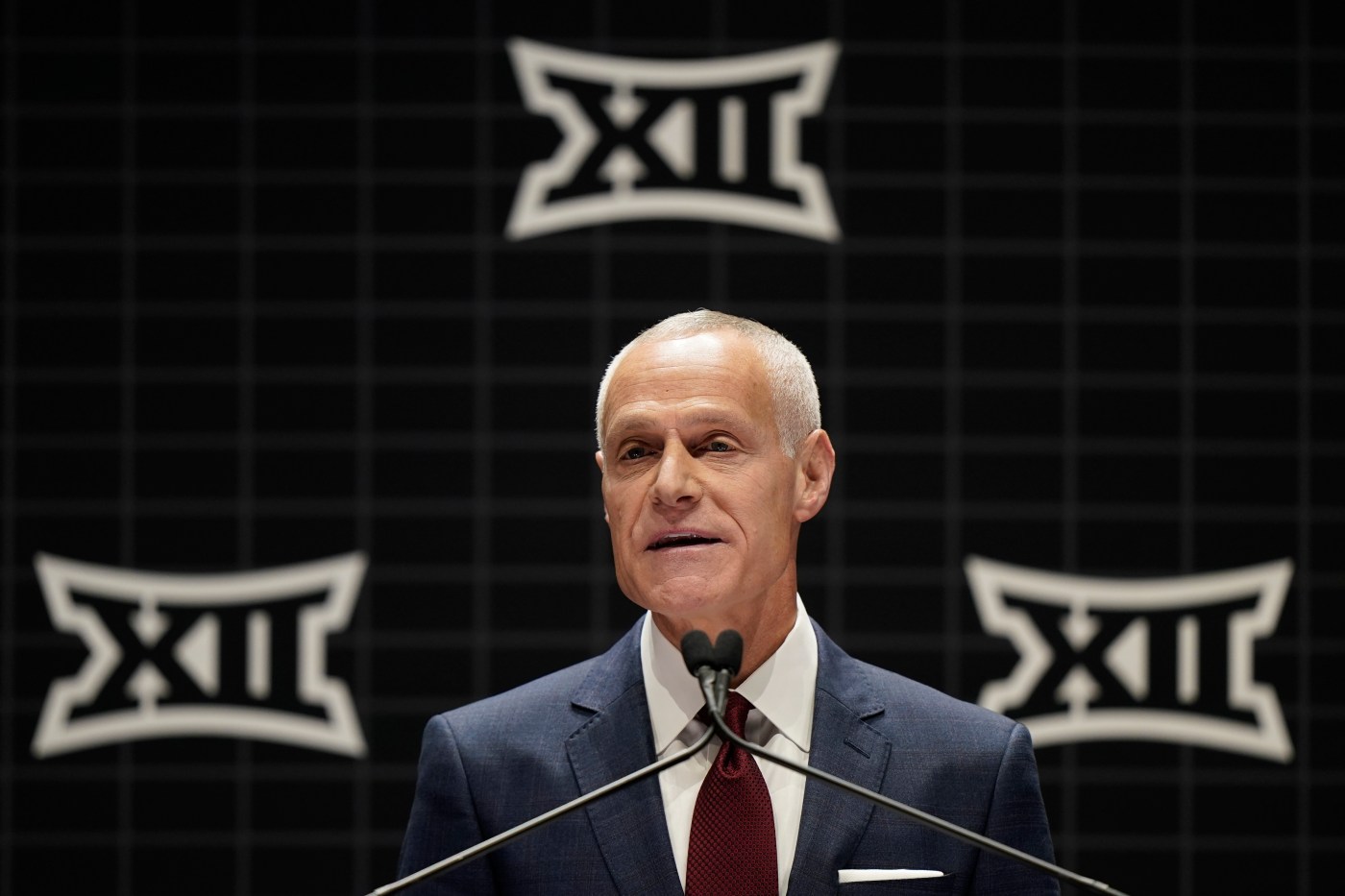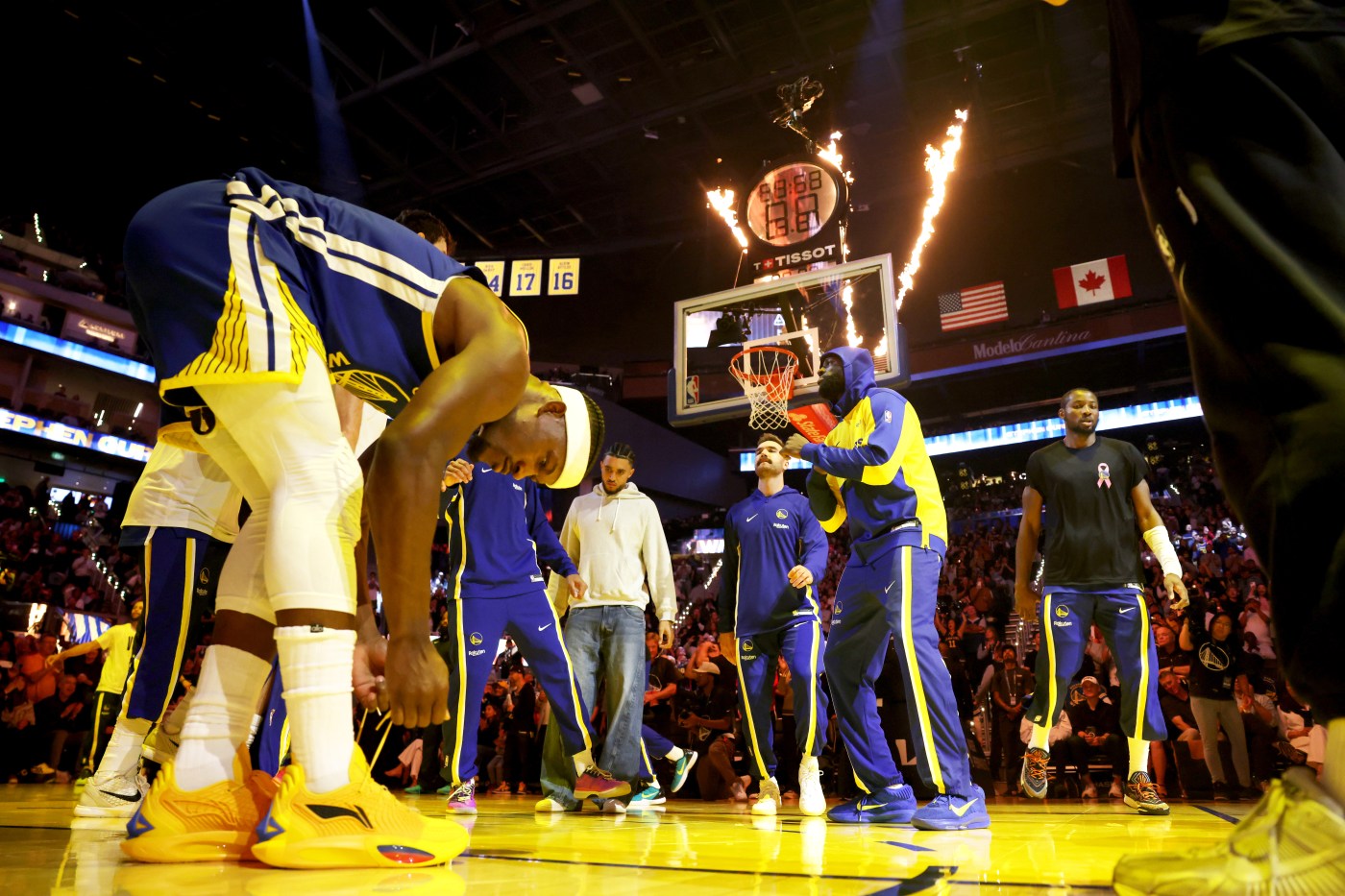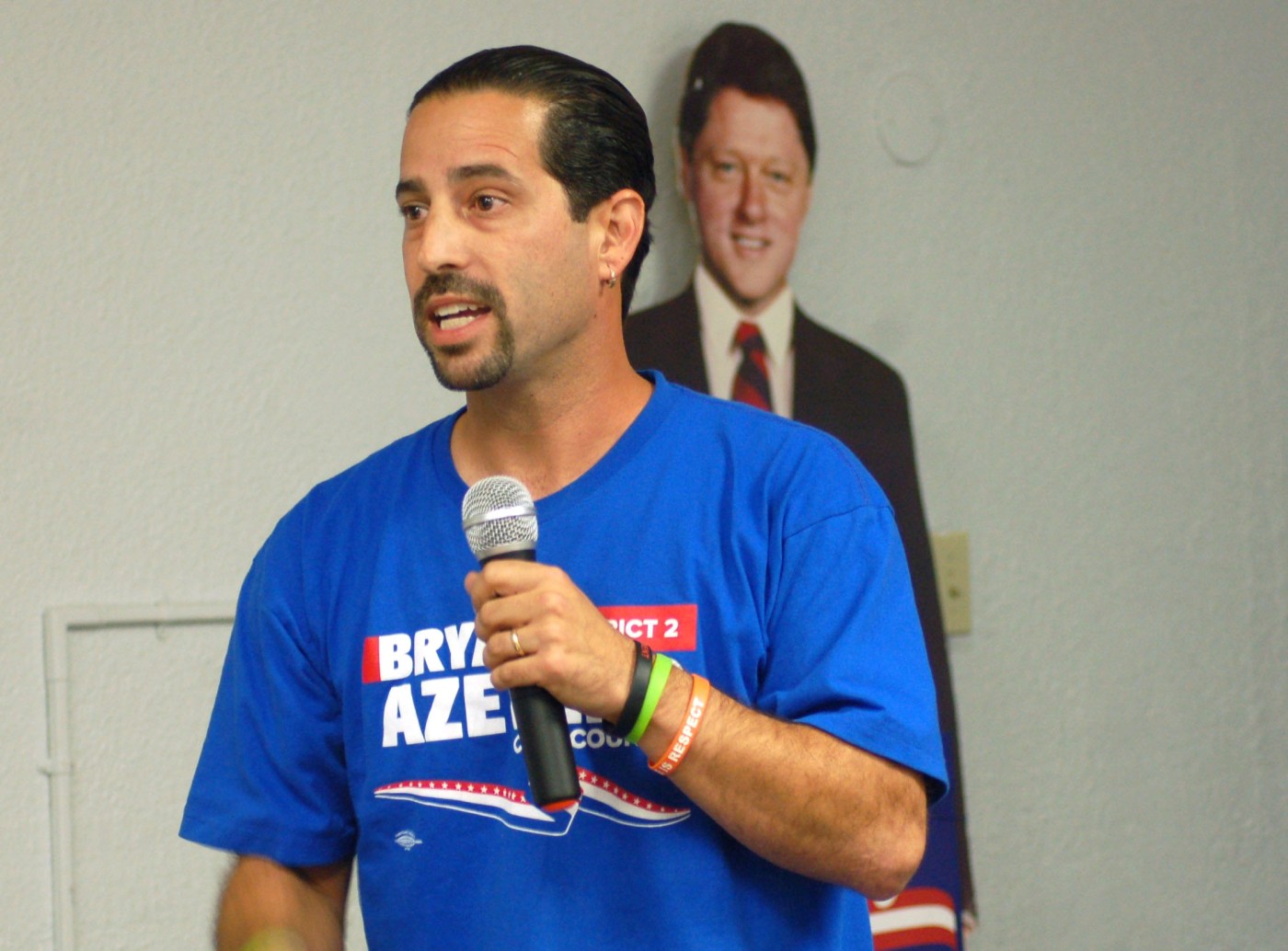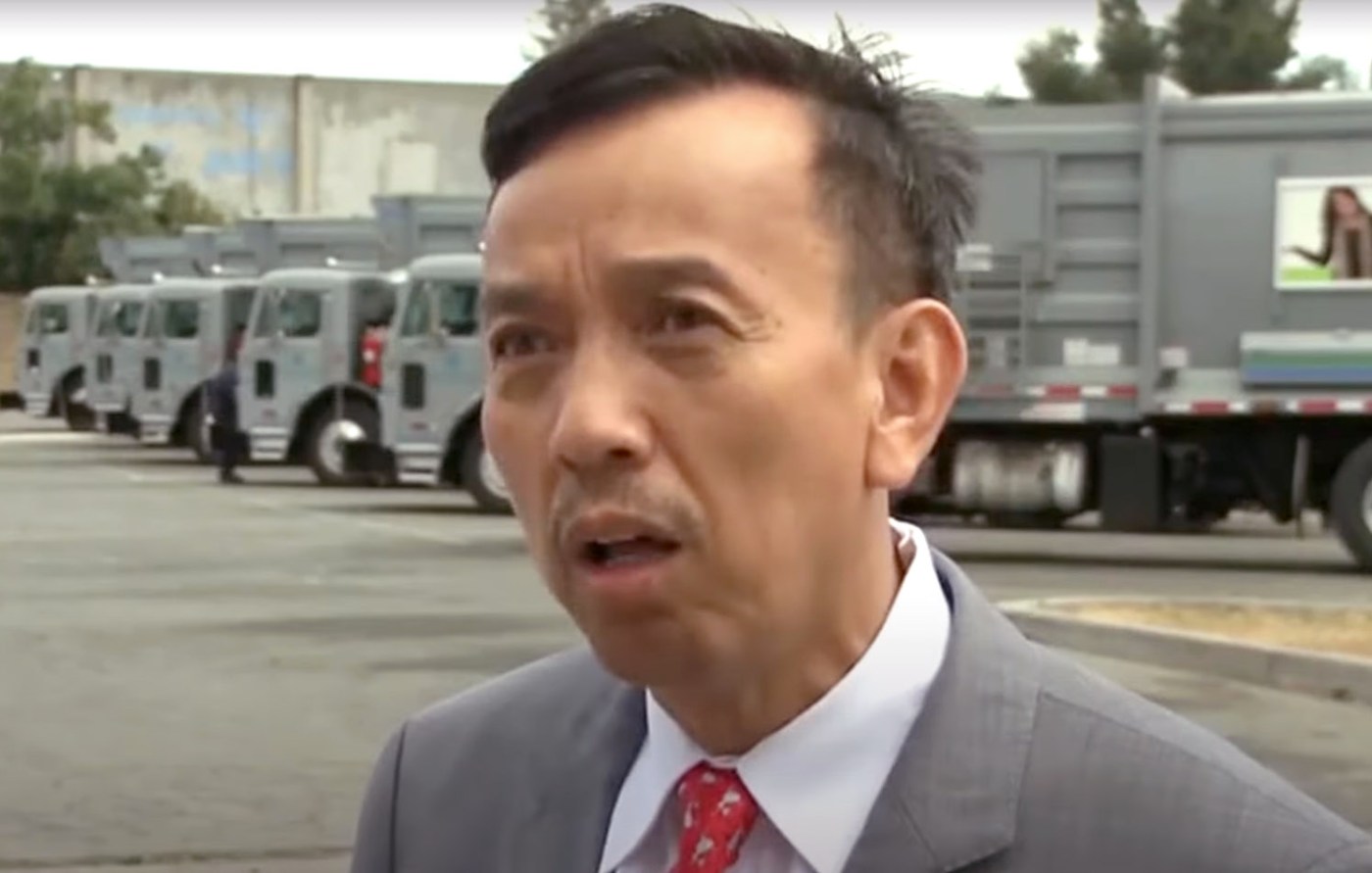The offseason is definitely not the slow season as yet another week delivered news impacting both the Pac-12 legacy schools and other universities across the region.
Here are four developments you might have missed.
1. Extension for Big 12 commissioner Brett Yormark
Nitty gritty: Yormark, whose contract was set to expire in 2027, received a three-year extension from the board of directors that expires in the summer of 2030.
Why it matters: The extension itself is no surprise: Yormark has done first-rate work changing the conference’s membership structure and building its brand. But the timing is deeply significant, in that it allows Yormark to shape the future.
The Big 12’s media rights agreement expires in the summer of 2031, which means the next contract likely will be signed and sealed in the spring of 2030 — during Yormark’s tenure. (Media deals are typically formalized 12-to-18 months in advance of the start date.)
Assuming he doesn’t leave the Big 12 on his own volition, Yormark will lead the strategic decisions on expansion and network partners and, with hand-picked advisors, negotiate the media deal for 2031 and beyond.
But that’s not all. That’s not close to all.
The extension means Yormark will be atop the Big 12 during the vital 2028-29 window, when 1) the College Football Playoff examines format changes, 2) the Big Ten mulls expansion for its next media contract cycle and 3) the ACC’s top football brands consider leaving the conference as their exit fees plunge.
Whatever college football becomes in the 2030s, the shape likely will become clear in the final years of the 2020s. Yormark’s extension gives him the chance to position the Big 12 within the shifting landscape.
2. Presidential commission on college sports
Nitty gritty: The Trump Administration is reportedly preparing to appoint a commission to study college sports and seek solutions to many of the industry’s intractable issues. Former Alabama coach Nick Saban and billionaire Cody Campbell, a Texas Tech booster, are expected to lead the group, according to Yahoo.
Why it matters: College sports is devolving into anarchy with the transfer portal, unchecked NIL payments and a competition calendar that’s increasingly unwieldy.
Even the House vs. NCAA lawsuit settlement, which will create a revenue-sharing model and NIL enforcement mechanism, is limited in scope (if approved). It will not, for example, end the barrage of antitrust cases filed against the NCAA over its amateurism policies.
A collectively bargained agreement with college athletes would provide the desired law and order but requires the players to be declared employees, a step university presidents are reluctant to take.
The other option: A liferaft from Congress, which has the authority to provide antitrust protection and codify NCAA rules. But years of lobbying by college sports officials have gone nowhere.
Trump’s commission won’t have the authority to make material changes on the legal front, but it could, potentially, generate the momentum that spurs lawmakers to act.
“I’m always a bit reluctant to have the federal government poking around in my business, invited or uninvited,” an industry source told the Hotline. “However, in this case, it might potentially do some good to get some of the higher-level issues figured out.”
3. College Football Playoff expansion … to 16?
Nitty gritty: The ACC, Big 12, Big Ten and SEC commissioners met this week in New York and discussed the future of the CFP, with a 16-team event “more preferred” for the contract cycle starting in 2026, according to ESPN.
Why it matters: To this point, the media narrative around CFP expansion has focused on a 14-team field. Now, it appears, the power conferences are focused on 16 — and increasing the number of at-large berths.
The model most likely to be adopted would provide four automatic bids to the SEC and Big Ten, two to the ACC and Big 12, one to the top team from the Group of Six, which includes the rebuilt Pac-12, and three to at-large teams. (It’s referred to as 4-4-2-2-1-3 by the commissioners.)
Notre Dame would have a manageable pathway to one of the at-large bids, leaving two for additional teams from the power leagues.
The move to 16 is straight out of the more-is-better playbook, but there’s a trick to making expansion work: the calendar.
In order to limit the event to four rounds, all 16 teams would compete the weekend before Christmas.
Where would the four additional CFP games be slotted into a crowded sports window that includes NFL games on Thursday, Saturday and Sunday?
Related Articles
Mailbag: On CFP expansion (to 16!), an ACC-Big East merger, Pac-12 legal affairs, the Trump commission and more
CFB recruiting: UW lands in-state star, Oregon’s latest blow, USC stays hot
Pac-12 finances: Legacy schools bled cash in final year of conference
Trump’s (planned) commission on college sports: Will it save the NCAA or just add to the chaos?
Pac-12, Mountain West agree to mediation over poaching penalty, exit fees
Would ESPN, which owns the playoff rights, want the extra games? Would it sub-license them to TNT or TBS? And how much would the network pay for additional matchups that aren’t likely to generate impactful ratings?
Those are critical details that must be considered as the CFP’s powerbrokers push for more-more-more.
4. Next step for Pac-12, Mountain West
Nitty gritty: The conferences have agreed to mediate their legal disputes — yep, both of them:
The so-called “poaching-penalty” case, filed by the Pac-12 against the Mountain West over $55 million in fees; and the so-called “exit fee case,” filed by Boise State, Colorado State and Utah State against the Mountain West over at least $100 million in exit fees owed by the departing schools.
The first mediation session is scheduled for May 19.
Why it matters: Neither conference wants a court trial; university presidents never want court trials. So mediation was always the most likely outcome for both cases.
One mediator, who is not identified in court filings, will oversee both cases.
We don’t expect an immediate resolution. The process could take a few days or a few weeks. It probably won’t last a few months, however, because both restructured conferences need clarity as they negotiate media rights agreements for the 2026-27 competition year.
Based on conversations with sources, the Hotline gives the Pac-12 a slight advantage in the poaching penalty case and the Mountain West a slight edge in the exit fee case.
In both instances, it’s about a suitable dollar figure — and whether the final tally leaves the Mountain West with enough cash to meet its financial obligations to UNLV and Air Force and prevent the duo from possibly departing the conference.
*** Send suggestions, comments and tips (confidentiality guaranteed) to [email protected] or call 408-920-5716
*** Follow me on the social media platform X: @WilnerHotline





